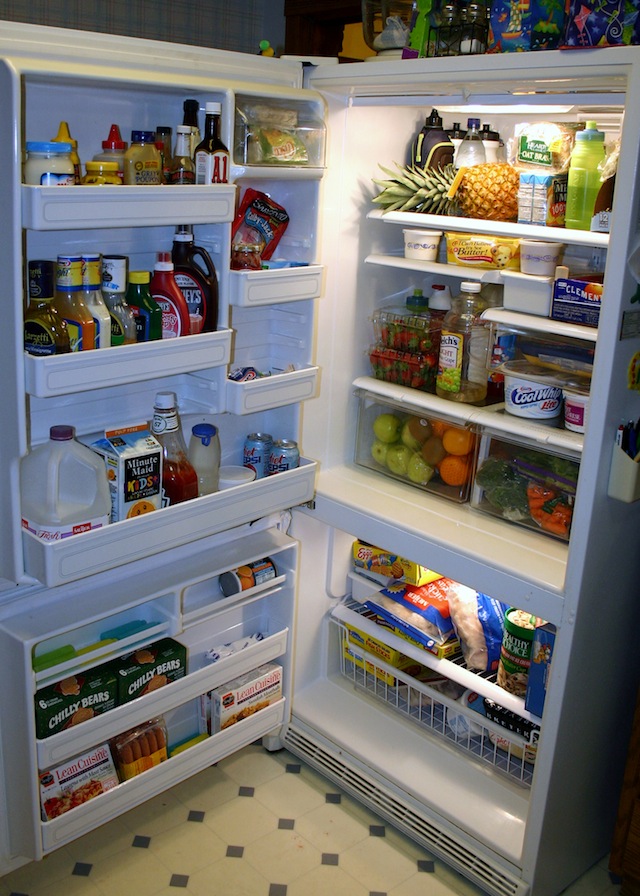Share the post "How To Properly Store Food In The Refrigerator"
Mold, bacteria, funny smells and rotting food. Sounds like your refrigerator? I hope not! But if you aren’t storing food properly you may be seeing at least some of these problems. Here are some tips on how best to store different foods to make the most of your time, food and money – not to mention avoid becoming ill.
Meat
To avoid the risk of meat being exposed to dangerous bacteria, you should keep all meat, poultry and fish in the original store wrapping. Many fresh meat items come with a little foam tray under the meat. If yours does not, put the item on a plate to catch any potential drips and avoid contaminating other foods within the fridge. Luncheon meats and hot dogs are pre-cooked so there isn’t a need to place on a plate.
If you aren’t planning on using the meat within a few days it is best to properly store it in the freezer until you’re ready to use it.
Dairy
Milk – Glass and plastic jugs are best for milk as the paper spout can become contaminated with bacteria. Be mindful of the date and a good sniff will usually tell you if it’s past its prime. Many refrigerators have shelves in the door where people like to keep milk. Some experts advise against this as the door tends to be the warmest place. Some newer models have a covered area within the door that has special ventilation to keep it cooler.
Yogurt, cottage cheese, sour cream – Store in their original containers. If you remove some to another dish for serving, do not return the leftover portioned food to the original container. Cover tightly with plastic wrap or the container’s own lid and store in the fridge.
Cheese – Hard cheeses should be kept in their original store packaging until opened and then you can wrap cheese in plastic, foil or wax paper. Shredded cheeses usually come in a resealable package and can be kept in it.
Soft cheeses should be kept in original packaging until opened and if the packaging is resealable can be kept in it until gone.
Fruits and Vegetables
Store vegetables with vegetables and fruits with fruits. Fruits and vegetables give off different gasses that can speed the ripening and decay of unlike produce. There are two different schools of thought on washing before storage. It has been said for some time now that you shouldn’t wash any produce until you’re ready to use it because washing it will speed up the breaking down of the food. More recently there have been reports that washing produce in a bath of water and vinegar prolongs the life of the food. It most likely comes down to the individual items. I feel the vinegar wash works wonders for berries of all kinds but washing potatoes ahead of time never ends well. You can do some further research and even experiment to see what works for you.
Leftovers
Leftover canned goods should not be stored in their original cans. Store in airtight containers, instead.
Place leftover foods from meals into airtight containers and into the fridge within two hours to prevent bacteria growth. Large portions of food can be separated into smaller containers to allow for quicker cooling.
Leftover foods should be used within one week. Many foods can be frozen so it can be wise to freeze leftovers in individual sized portions to prevent the food from going to waste. Do a little research to discover if the foods you are storing are freezer safe and how best to reheat them.
Proper storage is key to extending the life of your foods and preventing bacteria growth and contamination. And prolonging the life of your foods not only keeps you safe it saves you money.
«Buy Me a Pie!» — the most convenient, easy and elegant grocery list application :(iPhone/iPad) | (Android) |
Share the post "How To Properly Store Food In The Refrigerator"








 EN
EN  RU
RU